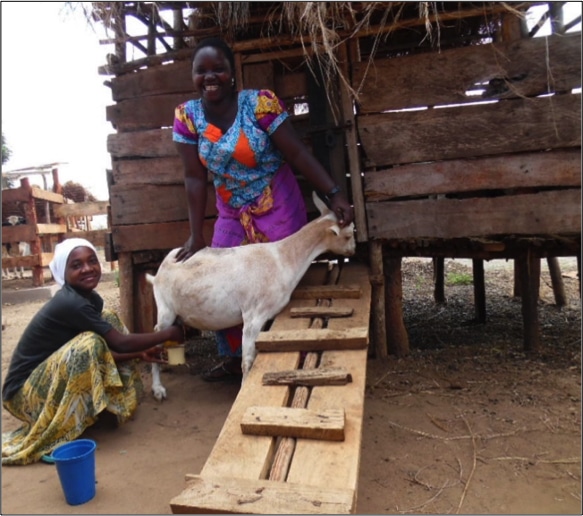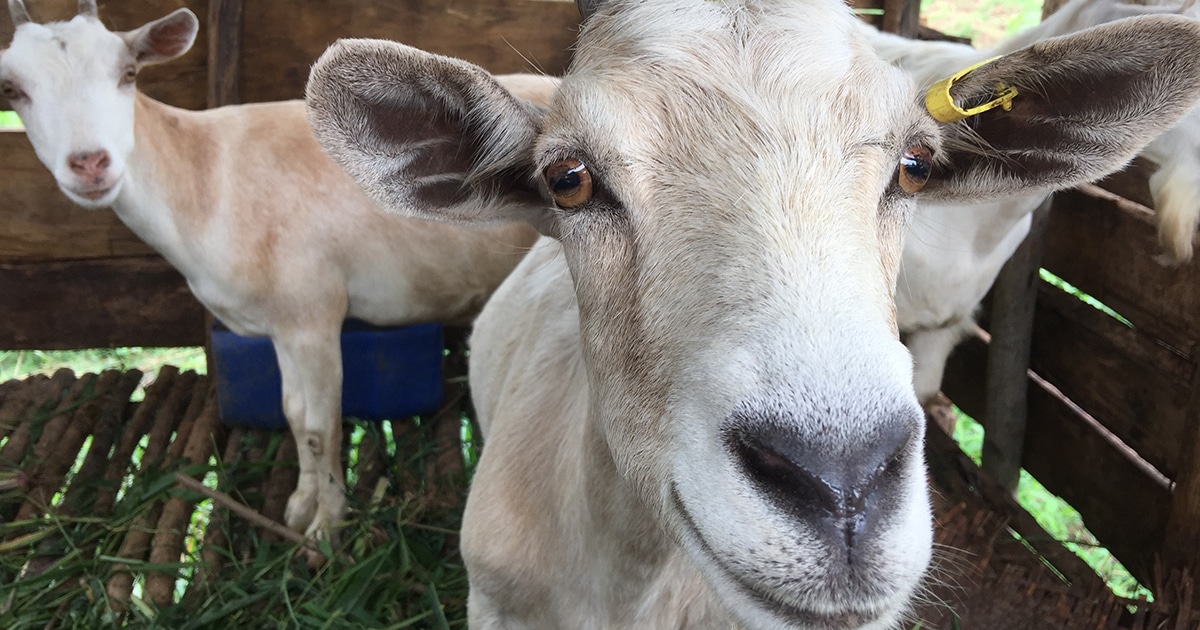Truly a “gift that keeps on giving,” dairy goats provide myriad benefits for poor and needy families in Tanzania.
The typical nanny goat provides between two to four litres of milk per day, offering a higher nutritional value than cow’s milk that is particularly important for pregnant women, lactating mothers, children, people living with AIDS, and senior citizens who require more calcium in their diets. The goats’ propensity to produce kids, often twins, on an annual basis can provide other families in the community with goats of their own, while surplus milk can be sold on the market to supplement meagre incomes.
By purchasing a gift through the 2016 Gifts for Mission gift guide, Anglicans can give a goat and bring hope to a family in need. A gift of $80 provides one dairy goat to a family living with AIDS, while a gift of $160 covers the cost of two goats, which can breed and produce offspring, offering both protein and income to a family living with AIDS.
For more than 15 years, The Primate’s World Relief and Development Fund (PWRDF) has supported the Diocese of Masasi of the Anglican Church of Tanzania by gifting one or two nanny goats to families of subsistence farmers and other vulnerable groups. Raising funds to match money invested by Global Affairs Canada, PWRDF also helps the diocese monitor and report its results to Canadian Anglicans and the Government of Canada.
The Diocese of Masasi works with local leaders to identify families and individuals in need, purchasing purebred dairy goats and distributing them to families in the Masasi, Nachingwea, and Tunduru districts. The program also operates outside Tanzania in Burundi, Mozambique, and Rwanda.

An important part of the project is ensuring that one billy goat is available in a village and rotated among five or more nanny goats. When the nanny goats give birth to kids, beneficiaries are required to pass the first-born to another family selected by the diocese and local leaders. The original family is able to keep all subsequent kids produced by their own nanny goat. Beneficiaries must sign “pass on” agreements and follow stated regulations, while a livestock officer and other diocesan project staff members visit beneficiaries regularly as part of normal monitoring duties.
The positive impact of a single dairy goat on families can be profound, providing a source of fresh, nutritious milk on a daily basis, as well as manure for gardens. For those suffering from AIDS, goat’s milk helps boost the body’s immune system, which in turn increases the effectiveness of anti-retroviral medication. Moreover, the sale of surplus milk can help provide families with an additional source of income, particularly for those with two or more goats.
The case of Zainabu Kilaza, a mother in the village of Stesheni in Nachingwea district, is instructive. Kilaza receives eight litres of milk per day from two dairy goats. She and her two children consume two litres per day and sell the remaining six litres, using the income to buy additional food as well as clothes and school supplies.
Income from the sale of two goats in 2015 allowed Kilaza to pay secondary school fees for her two children. In an interview with Joachim Sapuli, one of two livestock officers from the Diocese of Masasi, Kilaza said that without the dairy goat program, she would never have been able to earn the Tshs 1,200,000 (approximately $728) necessary to send her children to school.
“I am grateful to God that I am alive, I feel happy and healthy, and if I would not be the beneficiary of this dairy goat program, I would have died,” she said.
“Many have died, but I am glad I have been alive to see this change.”
With the budget line for the dairy goat project recently halved in the “All Mothers and Children Count” project—under which the Government of Canada matches every dollar PWRDF raises by 6:1—to free up funds for desperately needed water wells in Tunduru district, the gifts of Canadian Anglicans supporting the goat program are more vital than ever.
Give a goat and bring hope to a family in need through Gifts for Mission.
Interested in keeping up-to-date on news, opinion, events and resources from the Anglican Church of Canada? Sign up for our email alerts .

